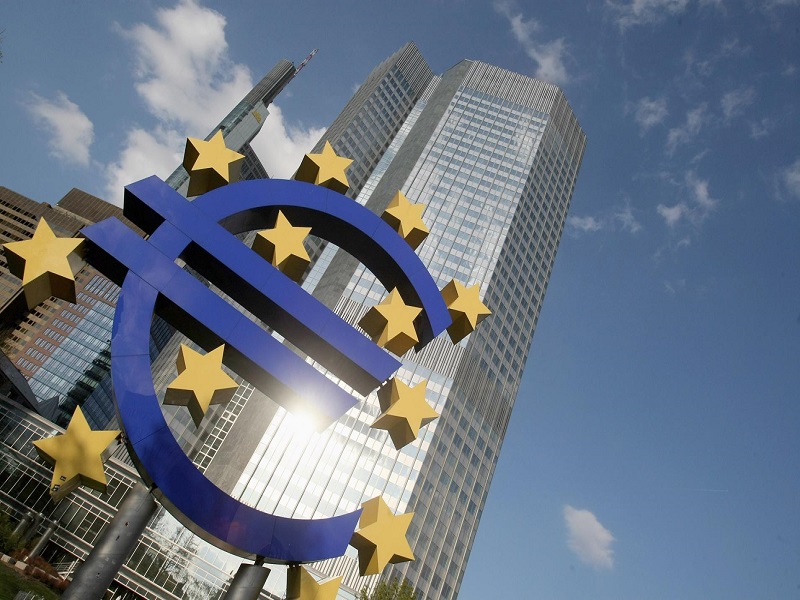The European Central Bank is engaged in “experimental work” on blockchain technology. As some banks have warned, the technology is still too new to know what real world uses it has. But, according to an ECB executive board member on Monday, the central bank is researching how the technology could apply to modern financial systems.
Also Read: Bitcoin Prices Inches Towards $470. Will $500 Be Next?
Member of the Executive Board of the ECB, Yves Merch, confirmed the ECB is investigating blockchain technology and how it could be adopted by the euro zone’s central banks.
ECB Believes Their Future Might Be Blockchained
“From a central bank perspective, in the context of our strategic reflections on the future of the Eurosystem’s market infrastructures, we are certainly open to new technologies and, like many market players, have launched some experimental work with DLT,” Mersch said. “It is clear that we have a lot of more thinking to do on DLT-related questions and their policy implications.”
He explains that the central bank is in the midst of researching possible technologies to change the future of central banking. Mersch said that blockchain technologies are “one of several possibilities” the central banking system could adopt. Blockchain-inspired technology could lead to “lower costs and a more resilient and legally sound market infrastructure.”
He cautioned: ”But even if, ultimately, DLT emerged as technically superior in terms of safety and efficiency, we will also have to reflect on the wider implications of the use of this technology for the role of central bank money.”
The blockchain technology became a focal point in 2015, overshadowing the Bitcoin technology which had been shrouded in controversy a la the bankrupt Bitcoin exchange, Mt. Gox, and darknet marketplace, Silk Road.
Currently, through partnerships like R3 CEV, some of the largest banks in the world are researching blockchain technology, in particular with Ethereum, an alternative blockchain from Bitcoin.
The Bank for International Settlements, and Santander bank, have posited that blockchain technology could make banking more efficient and less expensive. Many technologists say the blockchain has implications for industries outside of the financial industry.
“The possibility for financial intermediaries and market infrastructures to share a distributed ledger – i.e. a decentralised common database – is something unprecedented,” Mersch said. “It has the potential to advantage some actors, by lowering back-office costs and collateral or capital requirements. At the same time, it may possibly disintermediate or even make redundant some market actors that do not provide core functions.” He implies that a move to blockchain-inspired technology could mean central bank’s have their own, private crypto-currency on a private distributed ledger.
Bringing our Eurosystem market infrastructures on DLT automatically means bringing central bank money on DLT,” he said. “This may have implications on the central bank functions which go beyond the operational and technical sphere. It is therefore important to structure the discussion along the lines of who could access the central bank ledger.”
He added: “It is clear that we have a lot of more thinking to do on DLT-related questions and their policy implications. Before wielding the hammer we have to make sure that we have a strong anvil.”
No Blockchain-Specific Regulations For Now
EU lawmakers decided recently they would not yet regulate blockchain technology. “We don’t want pre-emptive regulation, but we do want precautionary monitoring,” Jakob von Weizsaecker, a German center-left member of the European Parliament, informed Reuters.
The regulators claimed they did not want to stifle innovation in financial technology. “One reason why regulating now in detail would be difficult is that we don’t know yet what the most important use of blockchain might be,” von Weizsaecker said.
BitStamp’s history paints a portrait that regulators also believe they already have the regulations necessary to keep an eye on Bitcoin. That exchange recently received a license from Luxembourg to operate as a money transmitter.
The report is not held as law. It requests the European Commission to monitor blockchain and fintech developments.
Andrew Hauser, BoE executive director for payments, said last week the authorities had to keep abreast of blockchain.
“Central banks can’t afford to be Ubered,”Andrew Hauser, BoE executive director for payments, Andrew Hauser quipped of the EU lawmakers to not spell out further details.
This, coupled by the European Central Bank and BitStamp’s transmission license, spells an optimistic future for blockchain technologies. Bitcoin could benefit from the good news in the general blockchain industry. A block reward halving in the not so distant future – July 10 more or less – the case is being made for a bullish second half for the digital currency.
What do you think about the ECB’s statements on blockchain technology? Let us know in the comments below!
